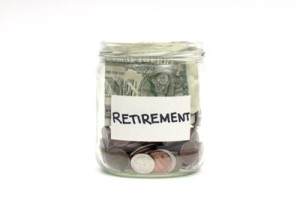 Today’s top story: Budgeting for newlyweds. Also in the news: What you need to know about May’s Fed meeting, should a partner’s debt keep you from marrying, and a retirement literacy quiz you need to pass.
Today’s top story: Budgeting for newlyweds. Also in the news: What you need to know about May’s Fed meeting, should a partner’s debt keep you from marrying, and a retirement literacy quiz you need to pass.
Budgeting for Newlyweds: Figuring Out Family Finance
Now comes the fun part.
May 2017 Fed Meeting: 7 Questions (and Answers)
What you need to know.
Ask Brianna: Should My Partner’s Debt Keep Us From Marrying?
Things to consider.
A retirement literacy quiz you need to pass
Knowing the essentials.
 Today’s top story: Four times when you might need a financial planner. Also in the news: Understanding the Glass-Steagall Act, how to manage money in your 20s, and how the Affordable Care Act drove down personal bankruptcy.
Today’s top story: Four times when you might need a financial planner. Also in the news: Understanding the Glass-Steagall Act, how to manage money in your 20s, and how the Affordable Care Act drove down personal bankruptcy.  Today’s top story: The costs associated with “free” college programs. Also in the news: 4 easy ways to become a banking guru, 3 medical debt mistakes to avoid, and 9 internships that pay better than “real” jobs.
Today’s top story: The costs associated with “free” college programs. Also in the news: 4 easy ways to become a banking guru, 3 medical debt mistakes to avoid, and 9 internships that pay better than “real” jobs.  Today’s top story: NerdWallet’s best credit card tips for May 2017. Also in the news: VA loan funding fees, the best banks for multiple savings accounts, and 401(k) myths you can’t afford to believe.
Today’s top story: NerdWallet’s best credit card tips for May 2017. Also in the news: VA loan funding fees, the best banks for multiple savings accounts, and 401(k) myths you can’t afford to believe.  Today’s top story: Making a habit of checking your financial health. Also in the news: Online business ideas for couch potatoes, how one couple paid off $20K of debt in 18 months, and how Trump’s tax plan may affect your 401(k).
Today’s top story: Making a habit of checking your financial health. Also in the news: Online business ideas for couch potatoes, how one couple paid off $20K of debt in 18 months, and how Trump’s tax plan may affect your 401(k). Today’s top story: Trump’s Tax Plan: Big Changes, Big Unknowns. Also in the news: Savings lessons from retirees for millennials, how to teach your kids about money when you’re a financial disaster, and why 40% of Americans spend up to half of their income servicing debt.
Today’s top story: Trump’s Tax Plan: Big Changes, Big Unknowns. Also in the news: Savings lessons from retirees for millennials, how to teach your kids about money when you’re a financial disaster, and why 40% of Americans spend up to half of their income servicing debt. Today’s top story: How to manage money in your 30’s. Also in the news: Student loan holders catch a home buying break, why you should get to work building an unemployment fund, and the 10 best entry-level jobs for 2017.
Today’s top story: How to manage money in your 30’s. Also in the news: Student loan holders catch a home buying break, why you should get to work building an unemployment fund, and the 10 best entry-level jobs for 2017.